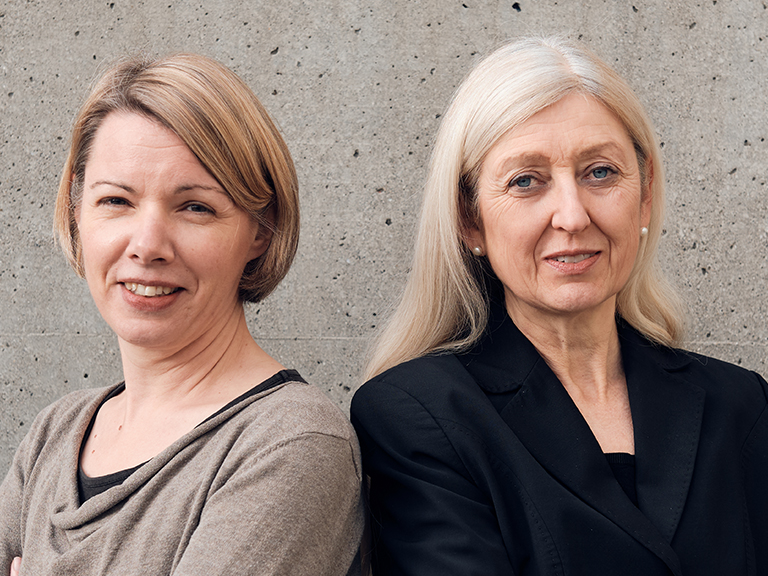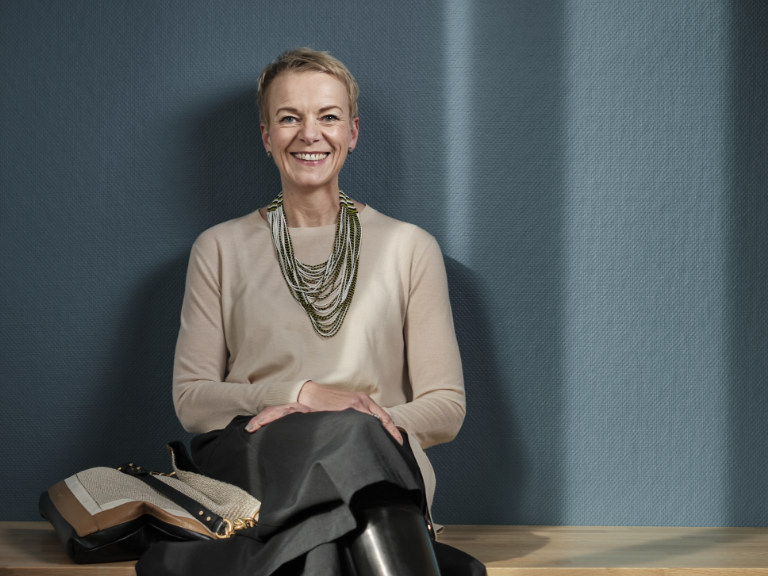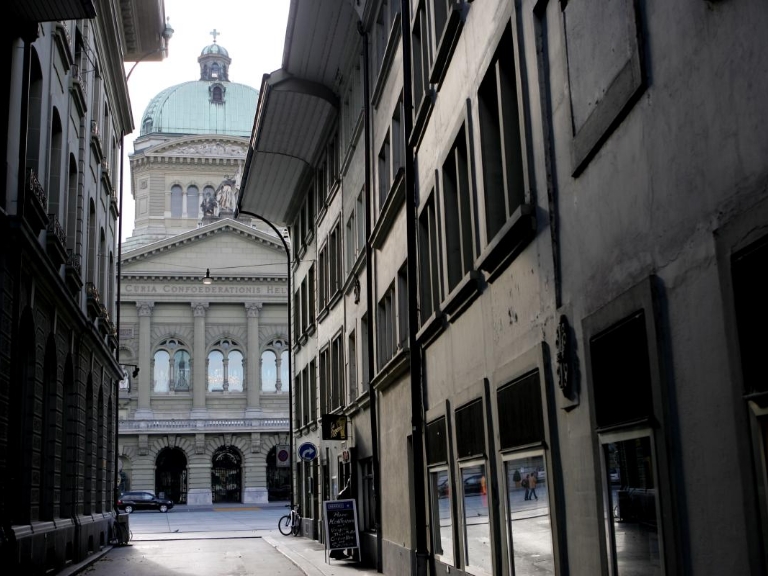University history
The “ivory tower” and us
The people of Bern and their University: A long and fruitful, but also complicated relationship, not without its dramatic moments, as a look at history shows.
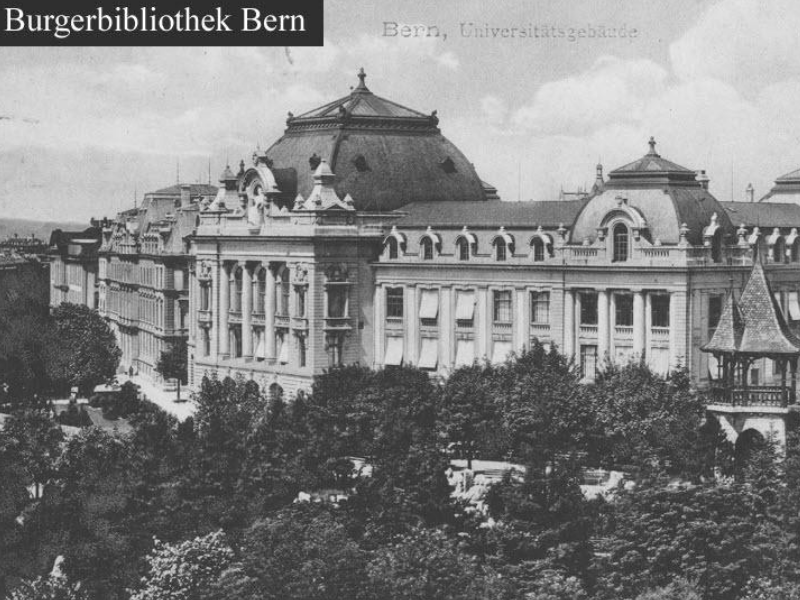
“The University wants to have an impact and, at the same time, be supported by the enthusiastic sympathy of the population,” wrote Werner Näf, Professor of General History, in 1930. In fact, the University and its predecessor institutions have always been an integral part of Bernese society – a relationship that, however, has never been free from tension.
Education of pastors and teachers
The University of Bern’s predecessor institution, the Hohe Schule (1528-1804), was founded in the context of the Reformation and the associated humanist movement in the Canton of Bern. The primary aim of the school was to train clergy for the approximately 200 parishes in the Republic of Bern as well as teachers for the Latin schools. Until the University was founded in 1834, education in the Canton of Bern was closely linked to the Church.
The Hohe Schule was designed as a “schola publica”. This means that all men who could understand Latin were able to take part in public lectures and general education, even if they did not intend to become a member of the clergy.
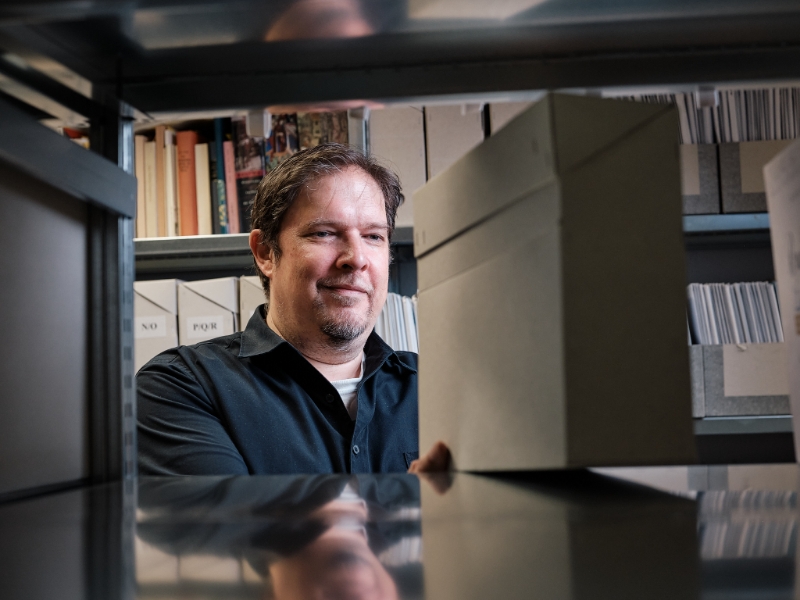
Liberal arts
This practice gradually became established. In 1616, the liberal arts were anchored in the humanistic school regulations, thus finally creating the basis for the first professorship of law in 1718. In this way, the University set new emphases in its self-image in order to meet the ever more complex needs of an increasingly secular society.
Bern’s educational landscape continued to develop in this direction when the Academy – somewhat more secular in its curriculum – replaced the Hohe Schule in 1805 as a result of the political changes in the Helvetic Republic. This laid the foundations for the phase that soon followed, in which the Academy or University increasingly served a modern canton and its growing administrative needs.
Magazine uniFOKUS

A part of Bern
This article first appeared in uniFOKUS, the University of Bern print magazine. Four times a year, uniFOKUS focuses on one specialist area from different points of view. Current focus topic: A part of Bern.
Rural criticism
At the beginning of the 19th century, the Canton of Bern was predominantly agricultural. Modernization processes also created a need for professionalization and scientification in agriculture. However, the University’s response to the concerns of agriculture was rather restrained: It is true that, in 1805, the Cantonal Parliament had established the School of Veterinary Medicine to train veterinarians needed in the military and agriculture. Requests for further agricultural training – such as the introduction of a subject for Alpine and dairy farming in 1890 – were, however, ignored by the University. This marginalization of agricultural interests undoubtedly contributed to the fact that the Bernese rural population tended to be critical or even hostile toward the University.
In the service of politics
The increasing commitment to science by liberal-radical forces from the 1830s onwards and the founding of the University of Bern in 1834 also led to further cultural alienation between the political and social camps in the run-up to the Sonderbund War. In 1834, the liberal government of Bern had envisaged the founding of a University in order to be able to attract loyal administrative officials for the new liberal state and anchor liberal thinking in the citizens. Cantonal Government member Charles Neuhaus painted this picture at the University’s opening ceremony with the following words: “The temple of academia is open to you. Enter with reverence and awe, and as you enter, resolve to become men and citizens. You will one day occupy the most prestigious positions in society.”
About the person
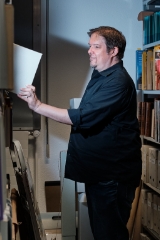
Daniel Burkhard
works as an archivist at the University of Bern. He holds a doctorate in history and is a trained archivist. Prior to that, he worked at the Swiss National Library. He is currently working on a project on digital business administration at the University Archives.
However, the proximity to party politics proved to be counterproductive for the University of Bern. From then on, it was torn apart by escalating political struggles and used as a scapegoat for the failings of the liberal government.
The fact that many of the professors at the new University were liberal radicals from abroad also contributed to this. Although they idealized the broadest possible access to education, they were at the same time perceived as elitist and snobbish by the urban and rural population of Bern.
University withdraws from debates
This “Sturm-und-Drang” (Storm and Stress) phase at the University quickly subsided when the political conditions in the canton of Bern changed from 1850 onwards. The University largely disappeared from the public debate. However, the academic disciplines experienced a golden age in the context of emerging industrialization and the retreat into national and international research groups. The sciences increasingly specialized in sub-areas that were difficult for laypeople to comprehend.
The foundations for Ovomaltine
Nevertheless, the University continued to shape the development of a modern society that required increasingly complex solutions to political, social, and scientific challenges. A concrete example of the interaction between knowledge generation, circulation and application is the creation of Ovomaltine. Georg Wander (1841-1897) was an assistant at the Institute of Chemistry and Pharmacy at the University of Bern from 1863 to 1865 and founded Wander AG in Bern. His son Albert Wander (1867-1950) studied chemistry, pharmacy and medicine in Bern, Zurich and Geneva. Albert Wander combined his father’s knowledge of chemistry with medical insights to develop dietetic foods at Wander AG. In 1904, he invented the commercially successful Ovomaltine, turning Wander AG into an internationally successful company.
Subscribe to the uniAKTUELL newsletter

Discover stories about the research at the University of Bern and the people behind it.
Advising policymakers
With growing pressure placed on the structure of modern society, such expert knowledge was increasingly in demand. Researchers – and increasingly female researchers in the 20th century – were sought-after interlocutors in consultation processes at national and cantonal level.
Committed to society
Around 1900, the University of Bern was very international in character. In the immediate post-war period, it temporarily lost some of its international character, but this had a positive effect on the relationship with the people of Bern: With the revision of the University Act in 1954, the University of Bern’s aspiration to fulfill its “task in the service of the community” moved to the heart of the University’s self-image. In this context, the Collegium Generale was founded in the 1960s, fostering interdisciplinary exchange within the University and seeking to counteract the isolation of highly specialized disciplines. This was followed in the 1980s by the Forum for University and Society, which focused even more heavily on medium- and longer-term outreach projects for Bernese society. In addition, the press office UNIPRESS and the magazine of the same name were launched in 1976, with the aim of reporting on the “work that is often done in silence at the University,” because: “A modern university is not a luxury, nor is it a matter of prestige, but a necessity for all sections of our population.”
“A modern university is not a luxury, but a necessity for all sections of our population.”
UNIPRESS, 1976
Since the 1990s, Unitectra has been supporting the transfer of knowledge to the regional economy. Today, Engaged UniBE and the Lifelong Learning Center (LLC) represent the latest forms of interaction between the University and society in order to continue to meet the demands of a knowledge-based society in the best possible way and to anchor the University even more firmly in Bernese society.
